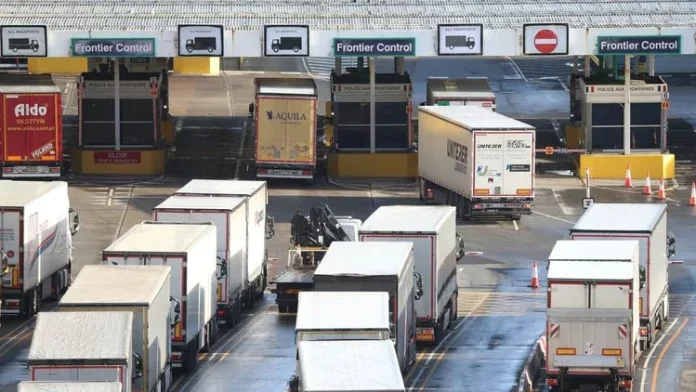Despite the decline in trade volumes, London School of Economics (LSE) research shows that the overall effect has been more limited than originally predicted by the Office for Budget Responsibility (OBR). The damage from Brexit to trade links with the EU totalled £27bn for the UK in the first two years, but the overall effect was more limited than analysts originally predicted, according to the most comprehensive review of the issue since Britain’s full exit from the bloc in early 2021.
Researchers from the London School of Economics found that trade barriers have been a “disaster” for small businesses and have forced thousands of companies to stop trading with EU countries.
Academics from the Centre for Economic Performance looked at evidence from more than 100,000 companies and found that by the end of 2022, two years after signing the Joint Trade and Co-operation Agreement (JTA) with Brussels, total exports of UK goods had fallen by 6.4 per cent and imports by 3.1 per cent.
The OBR estimate predicts that in the long term the UK will face a 15 per cent fall in trade, leading to a 4 per cent drop in national income. Despite this, researchers at the Centre for Economic Performance said the UK could experience a fall of the magnitude predicted by the OBR if trade relations with its largest trading partner deteriorate further.
Thomas Sampson, one of the report’s authors, said that by the end of 2022, the JTA had reduced trade in goods by less than half of what the OBR had predicted. However, the OBR figures are long-term projections and only the first two years of the JTA were studied. Further reductions in trade would be required to match OBR’s projections.
Rachel Reeves is likely to welcome the findings, which show the resilience of the economy in the face of a major trade shock. However, it will also create pressure on the finance minister to support efforts to reduce trade barriers over the next few years to prevent the situation from getting worse.
The UK plans to start negotiations next year on the next phase of the JTA. Ministers are expected to resist demands to open up agricultural markets to competition from EU farmers and fishing vessels in return for greater market access for British goods in the bloc.
Trade continued at the same level
The study’s authors noted that in the first two years of the JTA, large companies largely continued to trade with their EU counterparts at the same level. However, smaller exporters, those companies with fewer than 100 employees, suffered significantly. More than 14,000 of the 100,000 companies studied stopped trading with the EU completely, and almost all of them were small businesses.
Imports showed resilience compared to exports as large companies found ways to buy components and raw materials from outside the EU. Thomas Sampson also emphasised that the JTA was a disaster for small exporters, many of whom simply stopped exporting to the EU. However, large companies have adapted well to the new trade barriers and consequently overall exports have so far fallen less than expected.
The study was the first to analyse the impact of Brexit on trade using customs data collected by HMRC. The researchers said the data allowed them to look at individual business relationships and “highlight how large companies adapted better to the new trade regime than SMEs.”
The JTA did not include tariffs, but did introduce barriers to trade such as customs checks and paperwork, origin requirements, excise duties, sanitary and phytosanitary checks on the movement of animals and plants, and the need for exporters to prove that products meet the requirements of the target market. However, many of these checks have been repeatedly postponed and further measures are still due to come into force next year.
The study only looked at trade in goods and did not cover imports and exports of services, which largely fall outside the single market and customs union. Kalina Manova, co-author of the study and professor of economics at UCL, said the long-term productivity of firms will depend on their ability to maintain supply networks and diversify export demand in the face of higher and uncertain non-tariff barriers to trade with the EU.
The report shows that the UK’s exit from the EU’s single market and customs union in early 2021 resulted in an immediate decline in exports and imports with the EU. However, it also shows that companies responded to this shock in a way that mitigated the fall in overall trade.
Large companies did not experience a decline in exports, while importers partly compensated for the decline in imports from the EU by purchasing from other countries. Thus, at least in the short term, aggregate trade proved moderately resilient to the disintegration.
